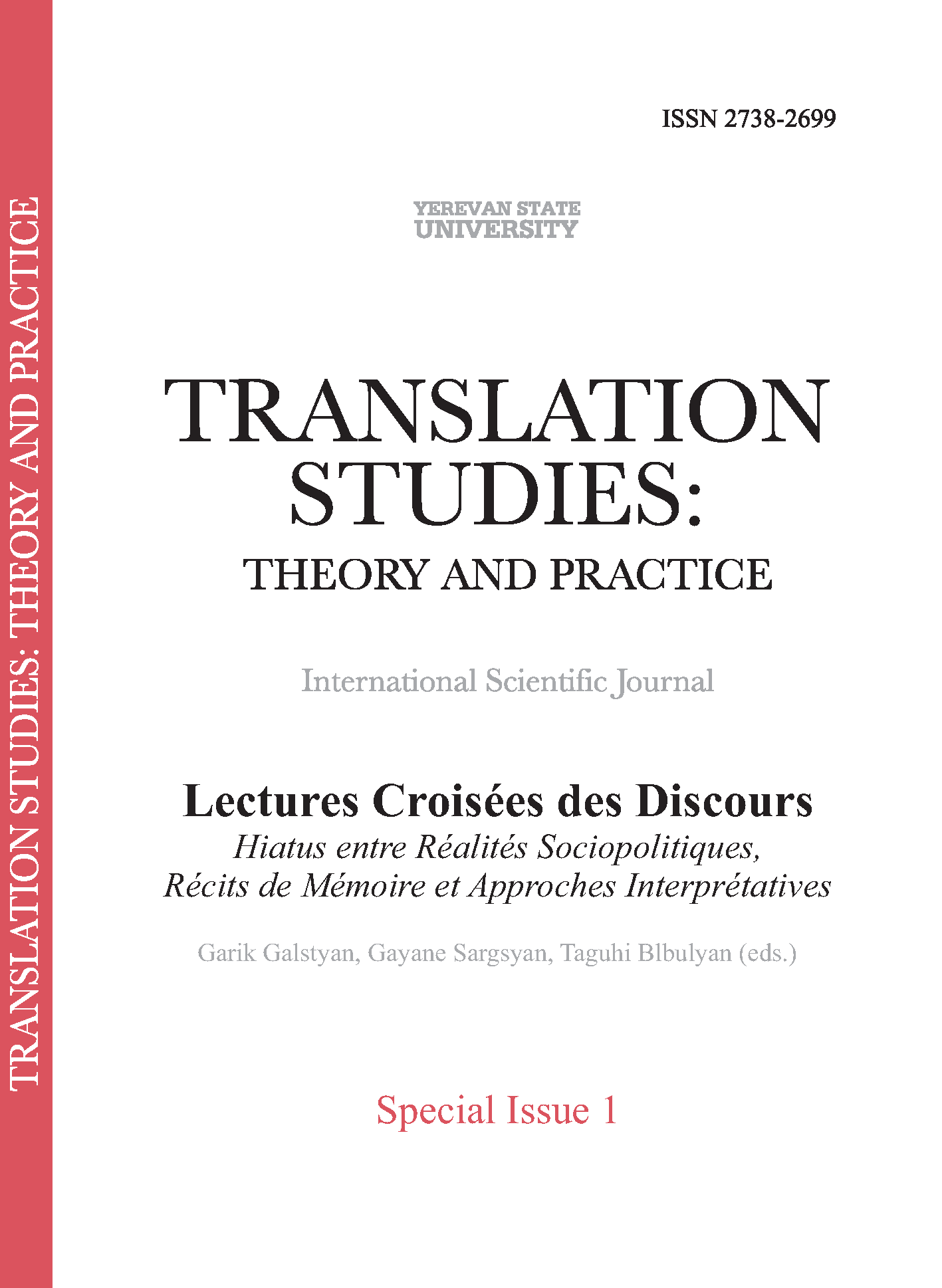Politics and Poetics of Hollywood Films: Insistent Trends of National Narrative
DOI:
https://doi.org/10.46991/TSTP/2023.SI.1.136Keywords:
Hays Code, CIA, Pentagone, Un-American Activities CommitteeAbstract
Hollywood cinema has often been defined as an “entertainment industry”, a term, which deduces a status quo in relations to politics. Contrary to the statement, Hollywood films are very much politically orientated with narratives that run through most productions and promote a particular perception of American society. The Production Code that was put in place in 1930 and imposed self-censorship was a major catalyst in relation to politics of filmmaking in Hollywood.
References
Baudrillard, Jean, Simulacres et simulation, Éditions Galilée, Paris, 1981.
Bidaud, Anne-Marie, Hollywood et le Rêve américain, Cinéma et idéologie aux États-Unis, Masson, Paris, 1994.
Bordat, Francis, « Évolution statistique de la pénétration du cinéma américaine », Revue Française d’Études Américaines, 1985, n° 24-25, p. 225-248.
Bourget, Jean-Loup, Hollywood, la norme et la marge, Nathan, Paris, 1998.
Caïra, Olivier, Hollywood face à la censure, CNRS Éditions, Paris, 2003.
Ceplair, Larry & Englund, Steven, The Inquisition in Hollywood, Politics in the Film Community, 1930 -1960, Anchor Press, New York, 1980.
Debord, Guy, La société du spectacle, Gallimard, Paris, 1967.
Jenkins, Tricia, The CIA in Hollywood, How the Agency Shapes Film and Television, University of Texas Press, Austin, 2012.
Landsberg, Alison, Prosthetic Memory, The Transformation of American Remembrance in the Age of Mass Culture, Columbia University Press, New York, 2004.
Lyman, Rick, “A Nation Challenged: The Entertainment Industry; Hollywood Discusses Role in War Effort”, New York Times, November 12, 2001.
Madelaine, Nicolas, « Le cinéma américain a « boosté » le box-office français en 2019 », Les Echos, 30 déc. 2019.
Morrison, Toni. URL : https://www.goodreads.com/quotes/118585-all-of-that-art-for-art-s-sake-stuff-is-bs-she-declares-what (consulté le 18/07/2022).
Rothman, Lily, “The Disney Censorship Story Is Udderly Ridiclous”, Time Magazine, October 16, 2014. URL: https://time.com/3507973/disney-censorship/ (consulté le 19/07/2022).
Schou, Nicholas, Spooked: How the CIA Manipulates the Media and Hoodwinks Hollywood, Hot Books, New York, 2016.
Sklar, Robert, Movie-Made America, A Cultural History of American Movies, Vintage Books, New York, 1975.
Stonor Saunders, Frances, Modern Art Was CIA ‘Weapon’, The Independent, 22 October 1995.
Tisseron, Serge, « Des images violentes à la violence des images. Quelle prévention ? », in Touati, Armand (dir.), Violences, de la réflexion à l’intervention, Cultures en mouvement, Paris, 2004.
Vaillancourt, Claude, Hollywood et la politique, Ecosociété, Montréal, 2012.
Downloads
Published
Issue
Section
License
Copyright (c) 2023 Sina Vatanpour

This work is licensed under a Creative Commons Attribution-NonCommercial 4.0 International License.





